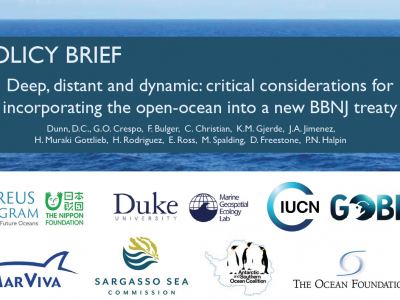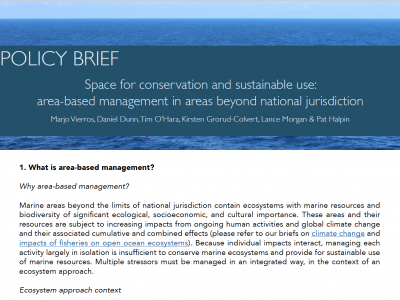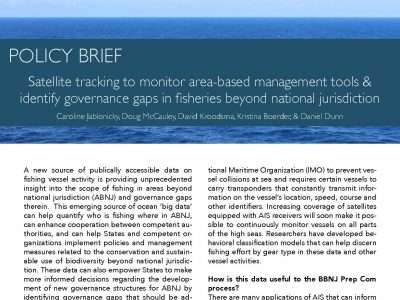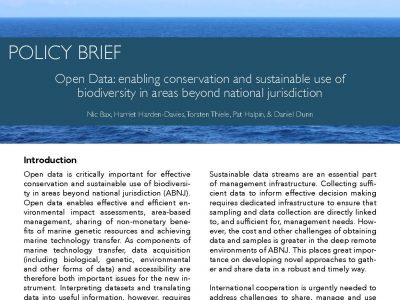POLICY BRIEF: Deep, distant and dynamic: critical considerations for incorporating the open-ocean into a new BBNJ treaty
To ensure a robust new International Legally Binding Instrument (ILBI) for the high seas, adequate attention will need to be placed on how the governance structures can address both fragile, static deep-sea ecosystems and immense, highly dynamic open-ocean ecosystems. In this policy brief we provide examples of open-ocean ecosystems, their importance to coastal States, and considerations of how to ensure the robust conservation and sustainable use of dynamic pelagic systems and biological diversity under a new ILBI.








